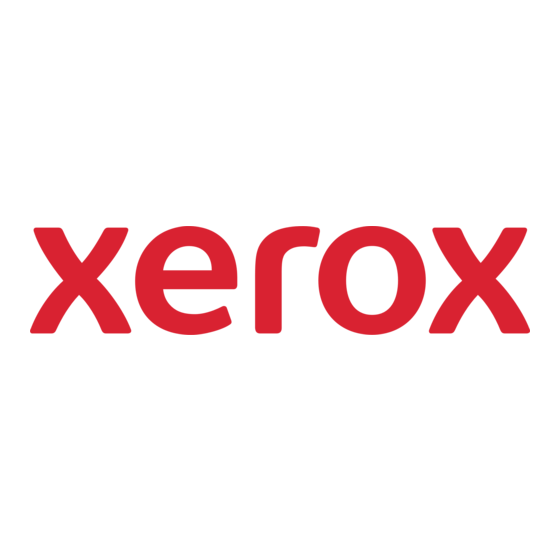most severe case, damage to the machine. In addition, Xerox cannot provide support for these
materials.
Do c u Co l o r 8 0 0 0 / 7 0 0 0 o u t p u t I n c o m p a t i b i l i t y w i t h Do c u T e c h Sy s t e m s
A few applications require solutions in which paper needs to be run in a color system with a second
printing pass through a black and white printer. Our experience with the Xerox DocuTech line of
products has not been positive. Serious contamination issues have been verified when running
DocuColor 8000 / 7000 output on a Docutech 135 system due to toner composition differences and
the difference in fusing temperatures.
If done in the opposite direction (ie. Black and white pass first followed by a DocuColor 8000 / 7000
pass) smeared images will occur since the fuser oils used are different in these two systems.
Some systems will have an interposer or inserter drawer where cover or insert materials can be
loaded. DocuColor 8000 / 7000 output can be fed and inserted within a job using DocuTech systems
equipped with an interposer since they do not have to pass through the fusing unit. Residual fuser oil
may, however, still lead to feeding and registration difficulties.
Pr e -p r i n t e d Fo r m s a n d Pr i n t i n g I n k s
Choosing the correct ink is the first step in designing forms that will function well in Xerox printers.
The forms should be printed with inks that cure well, are not tacky, and do not offset (transfer from a
printed sheet onto other surfaces). In choosing an ink, form printers must consider the conditions to
which the forms will be exposed while passing through the printer, taking into consideration the heat,
pressure, and dwell time during which the pre-printed paper is subjected to both.
In the past, good performance has been reported when using inks of the oxidative type, those that
are cured using ultraviolet (UV) light, and laser-safe inks. Oxidative inks may require several days to
harden satisfactorily, laser inks usually cure within 24 hours, and UV inks change immediately from
liquid to solid upon exposure to an ultraviolet light source. Special care must be taken to ensure that
pre-printed materials, for use in laser printers, use inks that do not offset. It is recommended that you
work closely with suppliers to verify that requirements are understood and met.
Drying agents are sometimes sprayed on printed sheets as they exit the printing press in an effort to
reduce the possibility of offsetting onto one another. These materials (typically powders) can become
contaminants when carried through Xerox printers. You should avoid using forms that have been
sprayed with these materials.
Always test the application before running production as liability ultimately lies in the hands of the
customer.
GB C® a n d V e l o B i n d ® Pa p e r s
GBC paper is a 19-hole drilled paper ready for binding using the spiral wound GBC binding system.
VeloBind paper is an 11-hole drilled paper used for comb binding.
The guidelines for loading and running jobs using GBC or VeloBind papers are the same as those for
other drilled papers. Misfeeds may occur more often with GBC and VeloBind papers than with
For more information on Genuine Xerox Supplies, call 1-800-822-2200 in the USA and 1800-668-0133 in Canada
10

